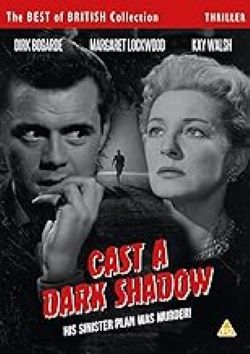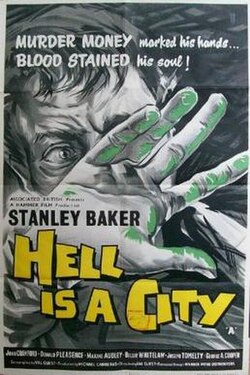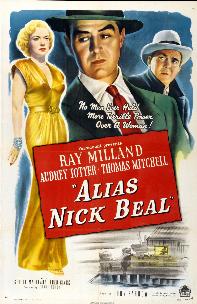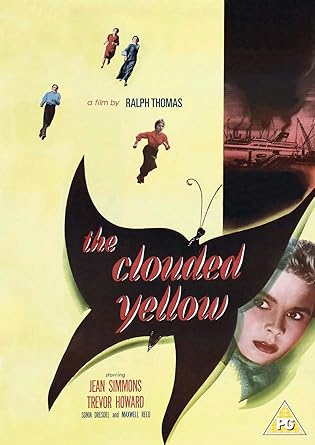
Flashbulb Memories now available on Audiobook
May 4, 2025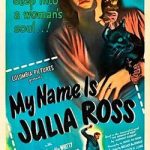
Film Noir Flashback/My Name is Julia Ross
May 18, 2025I post reviews (Film Noir Flashback) of movies from, and inspired by, Hollywood’s Golden Age of Noir, the 1940s and 1950s. I am a film noir enthusiast. Maybe, like me, you are looking to enjoy films that are different, or of a different era. Films you may not have seen, ones encompassing cynical detectives, seductive femme fatales, flawed sidekicks all tossed together into intricate plots. Not forgetting the snappy dialogue too.
Backstory: Film Noir has its roots in German expressionist cinematography and American crime fiction. During the 1930s Hollywood became a perfect storm of film artists fleeing the threat of Nazi Germany, emigrating to America, and specifically to the Film studios of Hollywood. This included great directors such as Fritz Lang, Jaques Tourneur, Michael Curtiz and Robert Siodmak.
This new dramatic visual style combined with American hardboiled crime stories (noir fiction), emerged during the Great Depression and produced many classic noirs. Some of these writers include: Raymond Chandler, James M. Cain, Dashiell Hammett, Patricia Highsmith, Jim Thompson and Mickey Spillane.
I hope to showcase some of these memorable noir movies here for you. And advance apologies for a mixture of British and US English occasionally and potential spoilers, although I will always try to avoid revealing the full ending. I have applied the link below, to the Amazon.com DVD of today’s featured film.
Inspired by hardboiled detective stories and film noir, I have written the Sterling Private Investigator Series, set in present-day London. I have also posted a link to my books at the bottom of the page. For more of my Film Noir Flashback blogs: https://johnkempauthor.com/blog-film-noir-reviews/
Today’s Film Noir Flashback is:
Cast a Dark Shadow
USA Prime Rental: https://amzn.to/4csGBBz USA Blu-ray DVD: https://amzn.to/4ifZ6L4
UK Prime Rental: https://amzn.to/3XZwHS9 UK DVD: https://amzn.to/4jv6eEg Blu-ray (Region 1/USA): https://amzn.to/43X7eN3
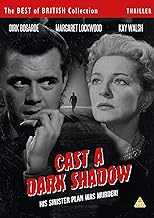
“No woman could resist his sinister charm!”
Film Studio: Eros Films Ltd. 1955 B/W (1957 in USA: Distributors Corporation of America)
Director: Lewis Gilbert
Original Music: Antony Hopkins
Cinematography: Jack Asher
Film Editor: Gordon Pilkington
Story: “Murder Mistaken”, a 1952 play by Janet Green
Screenplay: John Cresswell
Main Actors: Dick Bogarde, Margaret Lockwood, Kay Walsh, Kathleen Harrison
Produced by: Herbert Mason
Run time: 82 minutes
Preview
Courtesy of Wikipedia:
Cast a Dark Shadow is a 1955 British suspense film noir directed by Lewis Gilbert and written by John Cresswell, based on the 1952 play Murder Mistaken by Janet Green.
It stars Dirk Bogarde, Margaret Lockwood, Kay Walsh, Kathleen Harrison, and Robert Flemyng. The film was released on 20 September 1955, distributed by Eros Films Ltd. in the United Kingdom and Distributors Corporation of America in the United States. The story concerns a husband who murders his wife.
Janet Green wanted Dirk Bogarde to be in the earlier play version, but he declined, and Derek Farr played the role. When Lewis Gilbert was making The Sea Shall Not Have Them (1954), he saw the play and thought it would make a good film, and he persuaded Bogarde to play the lead. Bogarde persuaded Margaret Lockwood to co-star. “I was dubious about being able to play such a character, though I liked her honesty,” said Lockwood. Filming started at Elstree Studios on 12 April 1955 under the title Naked Flame. It was Gilbert’s first production for his own company. “I think it was an interesting plot, very claustrophobic,” said Gilbert. “I think it was the best thing Margaret Lockwood did. She was great in the film.” Dirk Bogarde later said, “The unwholesomeness of the hero was what was fun about it.”
Synopsis
During the opening credits of Cast a Dark Shadow, Edward “Teddy” Bare (Dirk Bogarde) and his much older (and rich) wife, Monica Bare (Mona Washbourne), share a carriage on a ghost train ride at the fairground. The latter is transfixed in child-like terror by the ghouls and ghosts that pop up and flash past. In contrast, her husband, Edward Bare, has eyes only for his wife, as if about to witness her dying of fright… He is deep in thought, and at one point, his face is in full shadow except for the light reflected off the cornea of his eyes. A most disturbing introduction to the character’s relationship. And unlike the ride’s fake thrills and shivers, Edward’s wicked guise is the real thing…
When the carriage exits, Monica is smiling and laughing and initially wants to go round again. Instead, she agrees to visit a favourite tearoom on their last day of their holiday in Brighton. “It’s been our second honeymoon, Teddy Bare,” she says reminiscing. When they arrive home, they are greeted by the trustful servant Emmie (Kathleen Harrison), “Toddle Emmie, toddle” (a favourite refrain of Edward’s), who tells them Phillip Mortimer (Robert Flemyng), her lawyer is here to see her.
Monica has written to her lawyer requesting to change her Will. Presently, the house – and only the house – is bequeathed to her husband. “Your money goes back to where it belongs,” Phillip reminds her, “back to your family.” (Her sister, in actuality). Edward is unknowing of his wife’s request to change the Will – to be in his favour.
Phillip reluctantly agrees to the revision but there is certainly no love lost between Edward and Phillip, as displayed by the cold shoulder Edward gives the lawyer before he leaves. “I want it here tomorrow morning,” Monica says privately to Phillip, “ready to sign.” Edward, however, mistakenly believes she wants to leave her money to her sister, Dora.
Later, Edward encourages his wife to drink heavily, then leaving her snoozing in her favourite chair, he tells the servant he is going out to the library. He slips back into the lounge via the French doors and stages his wife’s death by moving her next to the gas fire (placing matches in her hand), to look like she has asphyxiated from the gas.
At the trial, the death is ruled as an accidental death. Phillip is highly suspicious of the circumstances and tells Edward that if any information comes to light the case can be re-opened. He also informs Edward that he has inherited the house but not the money. Edward asks where Dora lives, “Kingston, Jamaica,” he replies and sarcastically adds, “too far, Edward.” To kill her. He will only inherit the money when Dora dies.
“She (Monica) was going to make it right, wasn’t she”, Edward says realizing after the fact. What’s more, Emmie, the servant is gifted £200. Though, Edward convinces her the money was given to pay her wages. “Wages in advance,” he says.
Edward takes a break to the Brighton seaside checking out lonely rich widows… whereby he meets the brassy Freda Jeffries (Margaret Lockwood). She might meet the criteria but she is also plain speaking, self-assured with wit that borders on the sardonic. Has Edward met his match?
The (practically) penniless Edward shrewdly ascertains her wealth of the widow by checking out her rings and jewellery (and if she is married). He learns she is a publican’s widow. Once a barmaid, she married the landlord, inheriting the public house after her husband, Albert died. Having sold it, she is now well off. Check!
Both holidaymakers are lonely, and so, they particularly enjoy each other’s company while taking tea together and dancing and flirting. And in Edward’s case, scheming too. This is where the film really takes off (Bogarde and Lockwood playing off each other), and Edward proposes a romantic union. Freda visits him, to look over his house and strikes up a deal, “pound for pound, Mr Bare. Pound for pound.” And you know she’s too savvy to share any of her own wealth. When they are married Edward encourages her to invest in his property schemes but she is too canny and rebuffs them. She’s no pushover.
Just to add, I love how they are on second name terms even after they are married, First it’s, “Mrs Jeffries” and then he addresses her as “Mrs Bare”. And vice versa.
Returning home one day, they see an attractive woman with a broken-down car just outside their drive. Edward, full of charm, offers to take a look at it. The woman, Charlotte Young (Kay Walsh), joins Freda for tea while she waits. Charlotte shares that she is looking to purchase a property in the area for an equestrian school.
Edward (a former estate agent) returns with the now fixed car and later shows Charlotte some properties which causes a rift between them. And jealousy from Freda. She watches on as her husband opens the car door for Charlotte Young, then whispers something into her ear to make her giggle. Freda’s expression is one of thunder.
Edward invites Charlotte to his home when Freda (and Emmie) is away. By the way she takes a peculiar interest in the fireplace, Edward deduces that Charlotte is in fact, Dora, (Monica’s sister), who has returned from Jamaica. Uh-oh. Edward admits to killing her sister. When Freda and Emmie return unexpectedly, Freda escorts Charlotte to the door. Then, Edward confesses to Freda to having killed his first wife to inherit the money, and he has a plan to inherit the rest of the money by killing Dora…
Things to like
*The servant Emmie played by Kathleen Harris is charmingly innocent. Edward uses her naivety to his advantage to further his courtship with Freda Jeffries. Witness, how he influences (and sets up) the servant to share positive words about how well he treated his first wife (in hopes she will repeat to Mrs Jeffries). Edward tells Emmie that Mrs Jeffries has had a sad life with her late husband, “She thinks every man is a monster,” he says. Emmie responds by saying, “Mrs Jeffries ought to have seen you and the mistress.” (How good he was to her). “I wish Mrs Jeffries could know about that,” Edward says in return, “it might help her.” Then he tells the servant he is off to pick a rose for his visitor. A master of manipulation.
*After Freda leaves the sitting room, Edward goes over to Monica’s rocking chair and rests his hands on it. Talking aloud, as if to his dead wife (the one he has murdered), he says, “You wouldn’t like this one, Monny. She’s common.” His psychopathic tendencies in full view!
*Edward lures Charlotte Young over to his house late one night under false pretences (“his wife is sick”). In fact, Mrs Bare has gone out for the evening with Emmie, the servant. Edward’s sinister side is on full display in this dark and unsettling scene. He reveals, “I killed your sister, Dora.” Having deduced that she is Monica’s sister, returned from Jamaica and unhappy with the verdict.
*Margaret Lockwood’s powerful performance alone makes the film worth seeing.
Quotes
Monica Bare: “It takes a big man to let an old woman teach him good manners.”
Edward Bare: “Who are you calling old. I wouldn’t change you for fifty younger ones.”
***
Freda Jeffries: “We buried my poor Albert six months ago.”
Edward Bare: “What was the matter with him?”
Freda Jeffries: “He was dead!”
***
Freda Jeffries: “Got all the tricks, haven’t you, Ed. Still, they’re nice tricks.”
Edward Bare: “I can’t be cross with you for long.”
***
Freda Jeffries: ” Nice woman. Pity, she came too late.”
Edward Bare: “What?”
Freda Jeffries: “You heard.”
***
Edward Bare: “Are you going to see Charlie this afternoon, about that piece of land?”
Freda Jeffries: “I wouldn’t entertain it. Listen Ed, a clever bird doesn’t foul its own nest. I don’t mind helping you pluck the one that’s just fallen into your lap. But my feathers are in tight, and if anyone pulls them, I yell.”
***
Edward Bare: (upon his sleepless nights) “I think I’ll move into Monie’s room, stay there for a night or two.”
Freda Bare: “Now listen, Ed. I don’t know what your arrangements were with Monie, but I didn’t marry you for companionship.”
Must-see scene
Instead of a dramatic action scene, I have gone for a scene when Edward Bare meets Freda Jeffries for the very first time. Less exciting than a mobster hit perhaps (albeit, there are none of those in this movie), but this is just as absorbing and interesting in other ways.
The setting in one of those mundane tearooms that seemed to be a staple part of 1950s England, and not much is happening. You sense the quiet desperation of the place and its visitors too. An experience much like drinking tea made from a ten-time recycled teabag. Bland, uninviting and colourless. From the dejected-looking band (a three-piece called, “The Rocketeers”), nobly performing to a few pensioners sitting around sipping their hot drinks during an afternoon rain shower…
However, things pick up when the leading players first notice each other. Edward discreetly observes Mrs Jeffries entering and then choosing a table a row in front. With her little compact mirror, she checks her make-up and catches sight of him in the mirror’s reflection. There is a minor acknowledgement but that seems to be that… Freda then places an order but then, wait, she turns around and initiates a conversation about the hot sun, and about having seen him about at the hotel. During their chat both admit to having regrets of coming, in fact. “I don’t even like the seaside,” she says mournfully and suggests he come over and join her at her table, so they can “hate the place together.”
The conversation from then on is a little cat and mouse with plenty of subtext. (Lots of “onion peeling”, let’s say). We already know Edward is likely on a lookout for a wealthy widow. We guess that she is looking for a holiday romance, and perhaps something more. Once they discover each is widowed, things start to develop quickly. Edward is inwardly scheming but little does he know he has targeted a very shrewd and astute “broad” on this occasion.
First things first though, Freda says she knows a better place to go to, and dance. Minus that weak tea, of course.
Summary
The highly talented Margaret Lockwood became a star after playing the lead in the Carol Reed film, Bank Holiday. Her next, was even bigger, playing one of the leads (Iris Henderson), opposite Michael Redgrave in the 1938 Hitchcock classic, The Lady Vanishes.
Her talent greatly impressed Hitchcock (someone renowned for not being impressed by actors!). A shame then, she didn’t star in more thrillers such as this, which is one of her finest films. Dirk Bogarde plays the creepy charmer wonderfully well, and they are an unlikely pair: the brash Freda Jeffries with heavy make-up, her “barmaids” laugh; likely loud enough to be heard across any noisy pub. And a cigarette never far from her hand or mouth. He, the smooth operator, full of cunning and sleight of hand. Both are smart and shrewd and we are intrigued to see who wins in this battle of wills. And if Freda will be his next victim.
A very entertaining British noir thriller (albeit with a slightly contrived ending), that flies high due to the two headliners involved and supported by a fine cast (Kathleen Harrison and Kay Walsh in particular). Jack Asher produces eye-catching imagery and creates an almost gothic and foreboding ambiance.
Dirk Bogarde is a sort of debonair psychopath with charm, and Margaret Lockwood is a character actress up there, in my opinion, with the best of the noir dames. If you haven’t seen it, a must see.
For more of my Film Noir Flashback blogs: https://johnkempauthor.com/blog-film-noir-reviews/
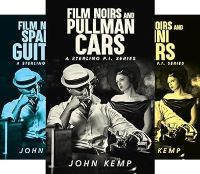
USA Link: Film Noirs & Doused Cigars (Audibook): https://amzn.to/44oyIv9 (eBook): https://amzn.to/3G8nHUx (paperback): https://amzn.to/4jzy4zl
UK Link: Film Noirs & Doused Cigars (eBook): https://amzn.to/3GHv3P6 (paperback): https://amzn.to/4jI5k7N

